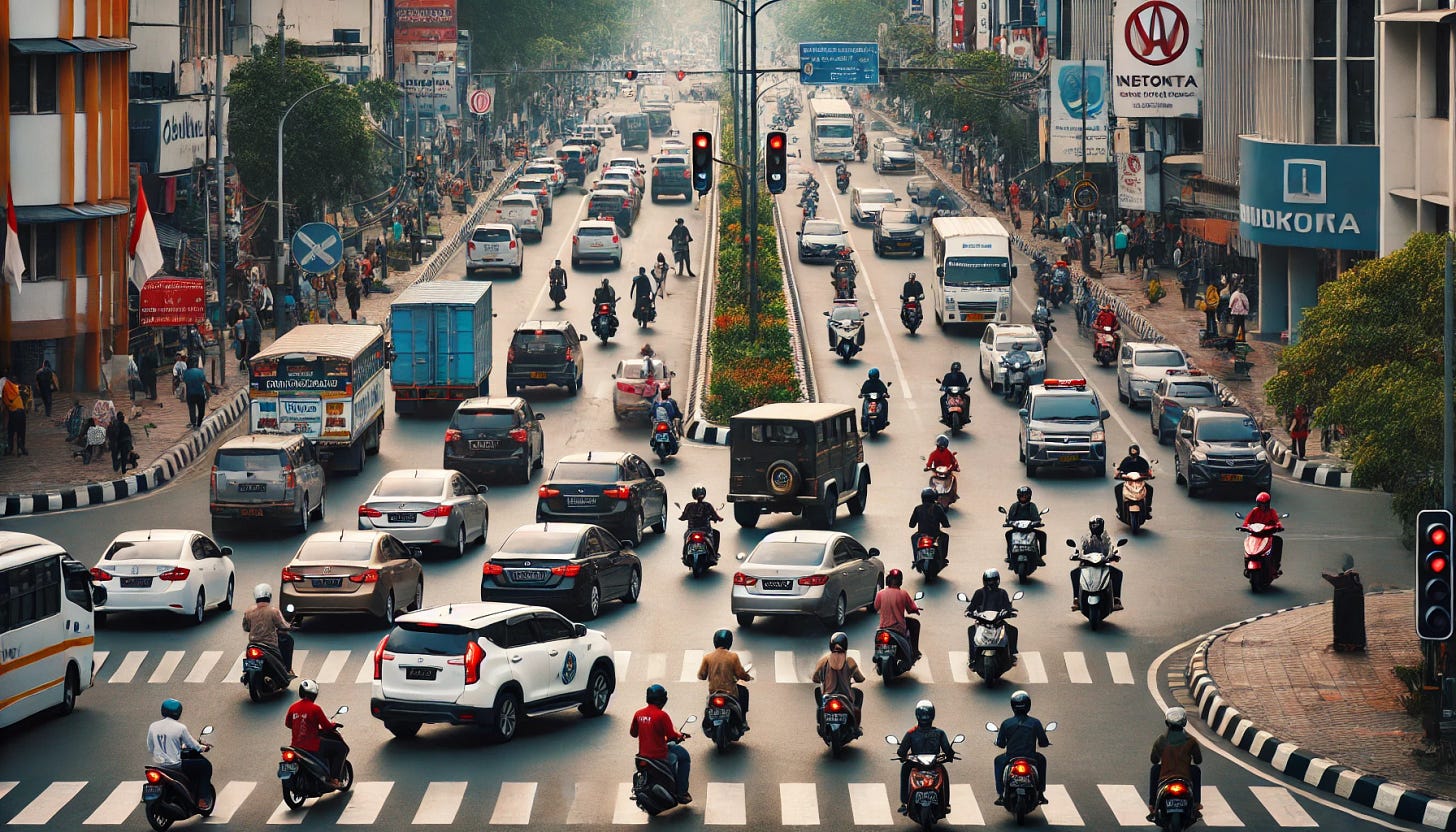Jakarta Traffic Police Implement ‘Relaxation Hours’ Where Traffic Rules Are Optional
JAKARTA— Jakarta Metropolitan Traffic Police have introduced "Relaxation Hours," a controversial initiative allowing motorists to disregard traffic rules between 2 PM and 4 PM daily. The pilot program, which began on Monday, aims to alleviate the city's infamous traffic congestion by observing driver behavior in a less regulated environment.
Chief Commissioner Arifin Setiawan, head of the Jakarta Metropolitan Traffic Police, explained the rationale behind the initiative. “We need innovative solutions to address our traffic problems,” he said. “Relaxation Hours are intended to test whether reducing enforcement can lead to smoother traffic flow and less gridlock.”
The concept is inspired by traffic theories suggesting that overly strict regulations may sometimes contribute to congestion. By permitting more freedom of movement, officials hope to identify natural traffic patterns that could inform future policies.
“We are not abandoning our commitment to safety,” Setiawan emphasized. “This is a controlled experiment to gather data on how drivers behave without constant regulation.”
Public reaction to Relaxation Hours has been mixed. Some motorists welcomed the change, viewing it as a chance to navigate the city more freely. “It feels great to drive without the usual stress of traffic fines,” said Rizky, a local commuter. “I can take shortcuts and get to my destination faster.”
However, many residents expressed serious concerns about safety. “This is dangerous,” said Diana, a mother of two. “I worry about reckless drivers causing accidents. It’s a recipe for chaos.”
Transportation safety experts also voiced skepticism. Dr. Haris Mahendra, a transportation analyst, warned of potential risks. “Traffic rules exist to protect lives,” he said. “Relaxing these rules, even temporarily, could lead to more accidents and fatalities. It’s a risky experiment.”
To monitor the impact of Relaxation Hours, the Jakarta Metropolitan Traffic Police have deployed additional surveillance tools, including drones and traffic cameras. These devices will capture real-time data on traffic flow, accident rates, and driver behavior during the relaxation period.
“We are approaching this scientifically,” Setiawan said. “Our team will compile detailed reports to evaluate the program’s effectiveness. Public feedback is also crucial to our assessment.”
The police have established a hotline and an online portal for citizens to report incidents and share their experiences during Relaxation Hours. This participatory approach aims to ensure community input is considered in future decisions.
As Relaxation Hours continue, the results will be closely watched by policymakers, traffic experts, and the public. If successful, the initiative could inspire similar experiments in other congested cities worldwide. However, if it leads to increased accidents and public dissatisfaction, it may highlight the importance of strict traffic enforcement.
“We are committed to improving Jakarta’s traffic situation,” Setiawan concluded. “Relaxation Hours are bold and experimental, but they reflect our willingness to explore all possible avenues to create a smoother and safer traffic environment.”
The coming weeks will reveal whether Jakarta’s experiment in relaxed traffic rules can offer valuable insights or serve as a cautionary tale. The balance between innovation and safety will be critical as the city navigates this new approach to traffic management.



